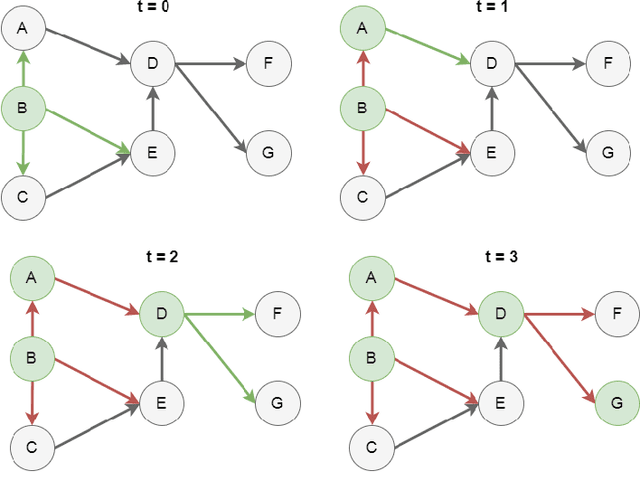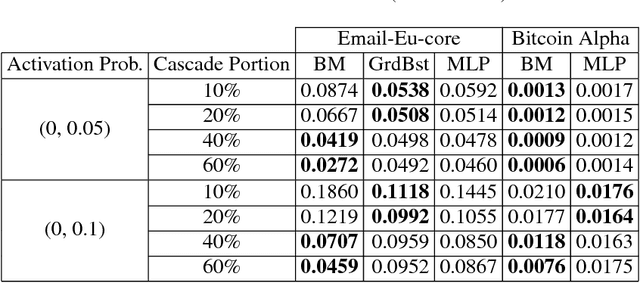Predicting Diffusion Reach Probabilities via Representation Learning on Social Networks
Paper and Code
Jan 12, 2019


Diffusion reach probability between two nodes on a network is defined as the probability of a cascade originating from one node reaching to another node. An infinite number of cascades would enable calculation of true diffusion reach probabilities between any two nodes. However, there exists only a finite number of cascades and one usually has access only to a small portion of all available cascades. In this work, we addressed the problem of estimating diffusion reach probabilities given only a limited number of cascades and partial information about underlying network structure. Our proposed strategy employs node representation learning to generate and feed node embeddings into machine learning algorithms to create models that predict diffusion reach probabilities. We provide experimental analysis using synthetically generated cascades on two real-world social networks. Results show that proposed method is superior to using values calculated from available cascades when the portion of cascades is small.
 Add to Chrome
Add to Chrome Add to Firefox
Add to Firefox Add to Edge
Add to Edge